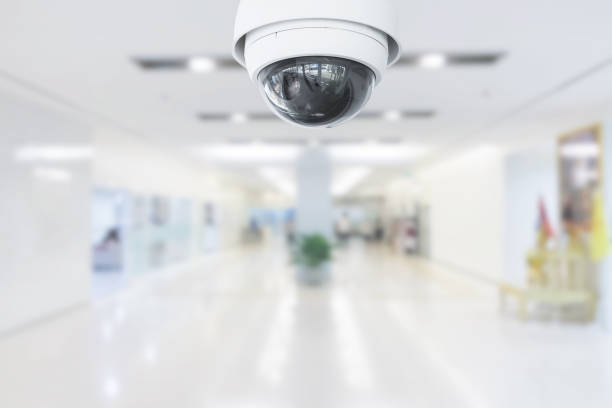In today’s healthcare environment, ensuring the safety and security of patients, staff, and visitors is of utmost importance. CCTV cameras play a vital role in enhancing healthcare security by providing surveillance and monitoring capabilities. In this article, we explore five ways CCTV cameras contribute to improving security in hospitals.

Introduction
Hospitals are dynamic environments with various security challenges, including patient safety, asset protection, and unauthorized access. CCTV cameras have become indispensable tools for addressing these challenges by providing continuous surveillance and monitoring. Let’s delve into the essential role CCTV cameras play in enhancing healthcare security in hospitals.
1. Monitoring Patient Activity and Safety
CCTV cameras enable healthcare providers to monitor patient activity and safety in real time. By strategically placing cameras in patient rooms, hallways, and common areas, hospital staff can promptly respond to emergencies and ensure the well-being of patients. This surveillance capability is especially crucial in critical care units and psychiatric wards where constant monitoring is necessary.
2. Preventing Theft and Vandalism
Hospitals are susceptible to theft and vandalism, posing risks to patient safety and operational efficiency. CCTV cameras act as a deterrent against theft and vandalism by monitoring high-risk areas such as parking lots, supply rooms, and equipment storage areas. In the event of suspicious activity, security personnel can intervene promptly to prevent losses and maintain a secure environment.
3. Enhancing Staff Safety and Security
Healthcare professionals often face unpredictable situations that may compromise their safety and security. CCTV cameras help create a safer working environment for hospital staff by providing visibility and monitoring of potentially hazardous areas. In emergencies, staff can quickly request assistance and receive support from security personnel, reducing the risk of harm.
4. Improving Incident Investigation and Resolution
In the event of security incidents or disputes, CCTV footage serves as valuable evidence for investigation and resolution. Hospitals can review recorded footage to identify the sequence of events, determine liability, and take appropriate action. This capability enhances accountability and facilitates the swift resolution of security-related issues.
5. Enhancing Overall Security and Compliance
Maintaining a secure healthcare environment is essential for regulatory compliance and accreditation. CCTV cameras help hospitals meet security requirements by providing continuous monitoring and documentation of security-related activities. By demonstrating adherence to security protocols, hospitals can enhance their reputation and instill confidence in patients and stakeholders.
Conclusion
In conclusion, CCTV cameras play a vital role in enhancing healthcare security in hospitals by monitoring patient activity and safety, preventing theft and vandalism, enhancing staff safety and security, improving incident investigation and resolution, and enhancing overall security and compliance. By leveraging the surveillance capabilities of CCTV cameras, hospitals can create safer environments for patients, staff, and visitors, ultimately improving the quality of care and patient outcomes.